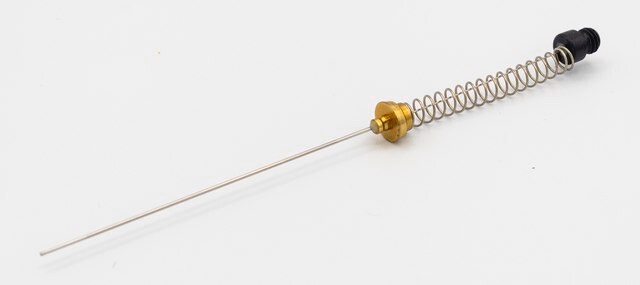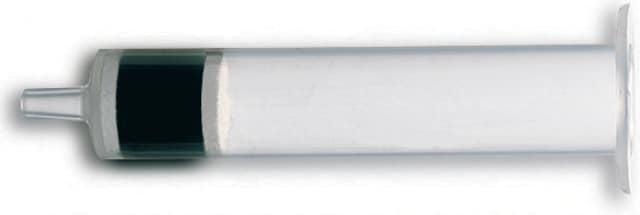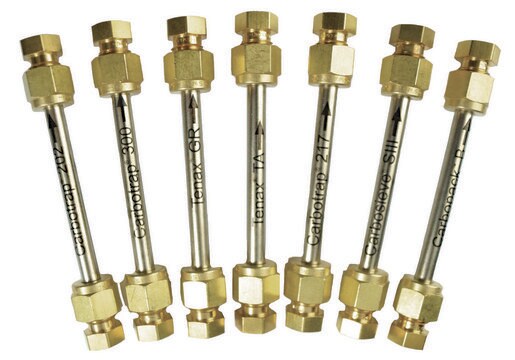55286-U
Supel™ QuE
PSA/C18/ENVI-Carb Tube, pk of 50, AOAC® 2007.01
Synonym(s):
QuEChERS
Sign Into View Organizational & Contract Pricing
All Photos(1)
About This Item
UNSPSC Code:
41115712
NACRES:
NB.21
Recommended Products
Agency
AOAC® 2007.01
composition
Discovery® DSC-18, 400 mg
ENVI-Carb, 400 mg
magnesium sulfate, 1200 mg
Supelclean PSA, 400 mg
packaging
pk of 50
technique(s)
QuEChERS: suitable
centrifuge tube volume
12 mL , Greiner Cat. No. 163270
application(s)
food and beverages
Looking for similar products? Visit Product Comparison Guide
General description
Dispersive SPE (dSPE), often referred to as the "QuEChERS" method (Quick, Easy, Cheap, Effective, Rugged, and Safe), is modern sample prep technique that is becoming increasingly popular in the area of multi-residue pesticide analysis in food and agricultural products.
Using the QuEChERS method, food/agricultural samples are first extracted with an aqueous miscible solvent (e.g., acetonitrile) in the presence of high amounts of salts (e.g., sodium chloride and magnesium sulfate) and/or buffering agents (e.g. citrate) to induce liquid phase separation and stabilize acid and base labile pesticides, respectively. Upon shaking and centrifugation, an aliquot of the organic phase is subjected to further cleanup using SPE. Unlike traditional methods using SPE tubes, in dispersive SPE, cleanup is facilitated by mixing bulk amounts of SPE (e.g., Supelclean PSA, ENVI-Carb, and/or Discovery DSC-18) with the extract. After sample cleanup, the mixture is centrifuged and the resulting supernatant can either be analyzed directly or can be subjected to minor further treatment before analysis.
Supelco carries a line of vials and centrifuge tubes containing pre-determined amounts of salts and SPE sorbents to support the most common method configurations used today.
Using the QuEChERS method, food/agricultural samples are first extracted with an aqueous miscible solvent (e.g., acetonitrile) in the presence of high amounts of salts (e.g., sodium chloride and magnesium sulfate) and/or buffering agents (e.g. citrate) to induce liquid phase separation and stabilize acid and base labile pesticides, respectively. Upon shaking and centrifugation, an aliquot of the organic phase is subjected to further cleanup using SPE. Unlike traditional methods using SPE tubes, in dispersive SPE, cleanup is facilitated by mixing bulk amounts of SPE (e.g., Supelclean PSA, ENVI-Carb, and/or Discovery DSC-18) with the extract. After sample cleanup, the mixture is centrifuged and the resulting supernatant can either be analyzed directly or can be subjected to minor further treatment before analysis.
Supelco carries a line of vials and centrifuge tubes containing pre-determined amounts of salts and SPE sorbents to support the most common method configurations used today.
Legal Information
AOAC is a registered trademark of AOAC International
Discovery is a registered trademark of Merck KGaA, Darmstadt, Germany
Supel is a trademark of Sigma-Aldrich Co. LLC
Storage Class Code
11 - Combustible Solids
WGK
WGK 3
Flash Point(F)
Not applicable
Flash Point(C)
Not applicable
Choose from one of the most recent versions:
Already Own This Product?
Find documentation for the products that you have recently purchased in the Document Library.
Customers Also Viewed
Stanisław Walorczyk
Talanta, 120, 106-113 (2014-01-29)
A triple quadrupole GC-QqQ-MS/MS method was optimized for multiresidue analysis of over 180 pesticides in blackcurrants. The samples were prepared by using a modified quick, easy, cheap, effective, rugged and safe (QuEChERS) analytical protocol. To reduce matrix co-extractives in the
Determination of toxic substances, pesticides and mycotoxins, in ginkgo biloba nutraceutical products by liquid chromatography Orbitrap-mass spectrometry
Martinez-Dominguez, G., et al.
Microchemical Journal, Devoted to the Application of Microtechniques in All Branches of Science, 118, 124-130 (2015)
Chun-Lin Fan et al.
Journal of AOAC International, 98(1), 130-148 (2015-04-11)
A 3 month study was conducted on the ruggedness of a multiresidue method for accuracy and stability. The results indicate that in terms of Youden pair ratios of 201 pesticide aged tea samples falling approximately within 1.00-1.20 of the ratio
Tsuyoshi Imazawa et al.
Shokuhin eiseigaku zasshi. Journal of the Food Hygienic Society of Japan, 46(6), 277-281 (2006-01-31)
An analytical method was developed for the determination of phenmedipham (PM) in agricultural products using reversed-phase high-performance liquid chromatography with UV detection. A sample was extracted with acetonitrile, and the acetonitrile layer was separated by salting-out. The acetonitrile phase was
U Führer et al.
Analytical and bioanalytical chemistry, 354(3), 333-343 (1996-01-01)
Halogenated anisoles (methyl-phenyl ethers) appear to be ubiquitous organic trace compounds in the environment. An analytical method is presented for analyzing the altogether 134 congeners of chloro-, bromo- and mixed bromochloro-anisoles on an isomer-specific basis in air. High volume sampling
Our team of scientists has experience in all areas of research including Life Science, Material Science, Chemical Synthesis, Chromatography, Analytical and many others.
Contact Technical Service










